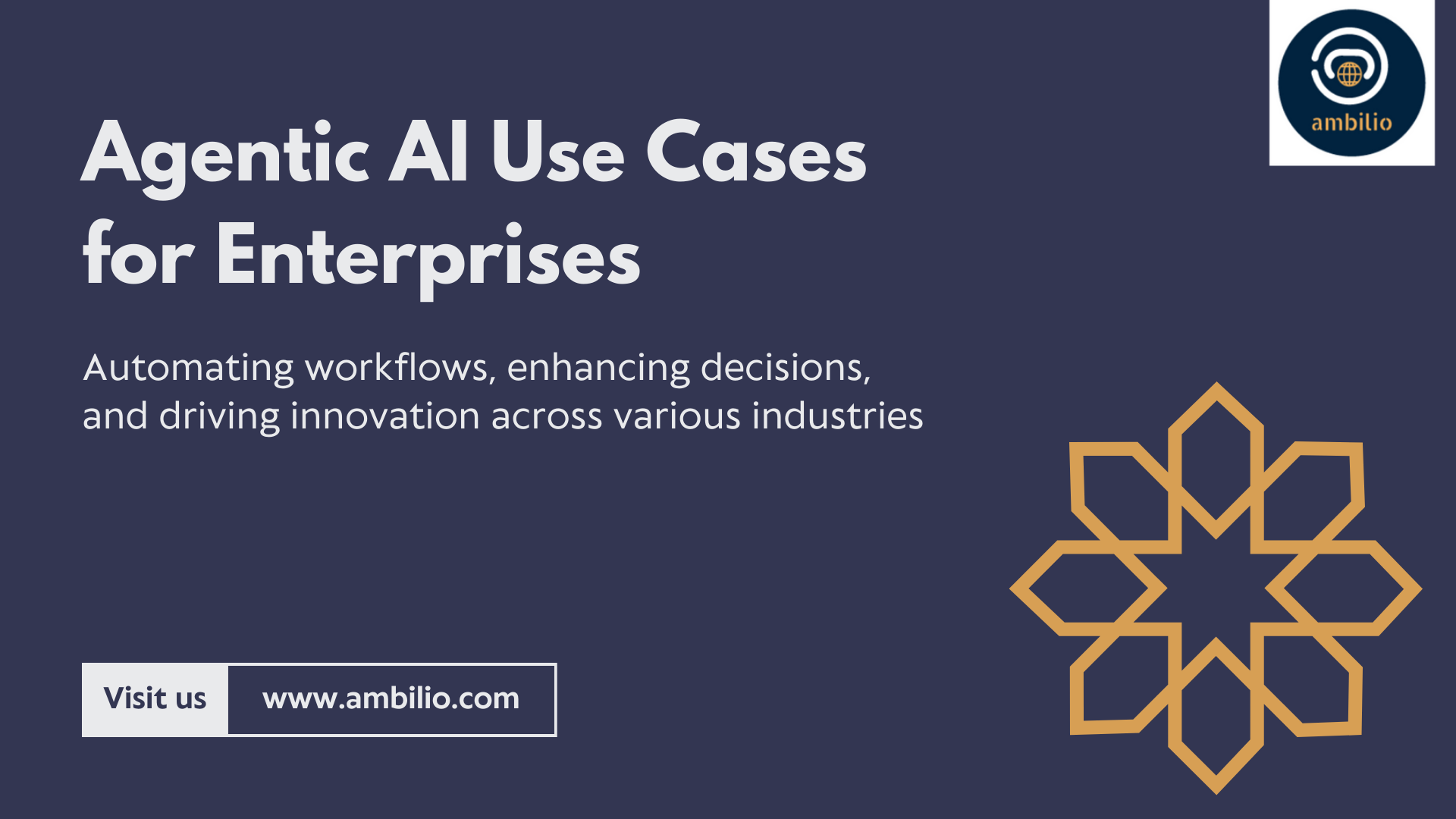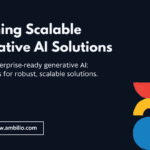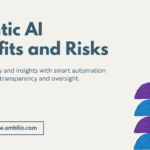Agentic AI marks a transformative frontier in artificial intelligence, empowering enterprises to automate intricate workflows and enhance decision-making with minimal human intervention. This technology stands poised to revolutionize industries by delivering intelligent, autonomous solutions that markedly boost operational efficiency, slash costs, and foster innovation across diverse sectors. Its ability to understand context, make informed judgments, and adapt dynamically positions agentic AI as a pivotal tool for optimizing processes, improving customer interactions, and driving overall business success in an increasingly competitive landscape.
Understanding Agentic AI
Agentic AI refers to AI systems designed to operate with a high degree of autonomy, reasoning, and adaptability. Unlike traditional AI, which is typically programmed for specific tasks, agentic AI can understand context, set goals, make decisions, and adjust plans dynamically. This advanced form of AI mimics human-like capabilities, allowing it to handle complex, multi-step processes independently.
How Does Agentic AI Work?
Agentic AI leverages advancements in large language models (LLMs), scalable computing power, and massive datasets to achieve its capabilities. The core components of agentic AI include:
- Autonomy: The ability to take goal-directed actions with minimal human oversight.
- Reasoning: Advanced decision-making skills that allow the AI to understand nuanced situations and make contextual judgments.
- Adaptable Planning: Flexibility to adjust goals and plans based on changing conditions.
- Language Understanding: Sophisticated interpretation of natural language instructions.
- Workflow Optimization: Efficient execution of processes across different applications and tasks.
These components enable agentic AI to perform tasks that require complex reasoning and adaptability, making it a powerful tool for enterprises.
Benefits of Agentic AI
The integration of agentic AI into enterprise operations brings several key benefits:
- Increased Productivity: By autonomously executing complex workflows, agentic AI can significantly enhance operational efficiency.
- Improved Decision-Making: The ability to understand context and weigh tradeoffs enables more informed and strategic decisions.
- Enhanced User Experience: Natural language understanding and adaptability provide intuitive and responsive interactions for both employees and customers.
- Reduced Errors: Consistent and logical decision-making reduces the risk of human errors.
- Scalability: The autonomous nature of agentic AI allows it to scale across various applications and handle increasing workloads efficiently.
High-Value Use Cases of Agentic AI
Here we have listed several high value use cases of Agentic AI at enterprise level across the industries. Lets have a look at this curated list of use cases.
Banking and Financial Services
- Automated Customer Service: AI agents can handle complex customer inquiries, process requests, and resolve issues without human intervention. This improves customer satisfaction and reduces the workload on human agents.
- Algorithmic Trading: AI agents can analyze market data, execute trades, and adjust strategies autonomously. This leads to more efficient and profitable trading operations.
- Fraud Detection and Prevention: Continuous monitoring of transactions and activities by AI agents helps identify and prevent fraudulent behavior, enhancing security and trust.
- Optimizing Financial Processes: Tasks like invoice processing, payroll reconciliation, and financial reporting can be streamlined, leading to faster payments and better financial control.
Retail and Consumer Packaged Goods (CPG)
- Personalized Marketing: AI agents can create and deliver highly targeted marketing campaigns, adapting in real-time to customer responses. This increases engagement and conversion rates.
- Dynamic Pricing: AI systems can adjust pricing in real-time based on demand, competition, and market factors, maximizing revenue and competitiveness.
- Supply Chain Optimization: AI agents can manage inventory levels, optimize logistics, and forecast demand accurately, resulting in cost savings and improved efficiency.
Manufacturing
- Predictive Maintenance: AI agents monitor equipment, predict failures, and schedule maintenance automatically. This minimizes downtime and extends the lifespan of machinery.
- Intelligent Process Automation: Entire production processes can be managed and optimized by AI agents, making real-time adjustments to improve efficiency and output quality.
Healthcare
- Enhanced Patient Care: AI agents can assist in diagnosing diseases, recommending treatments, and personalizing patient care plans based on real-time data analysis.
- Automating Administrative Tasks: Scheduling appointments, managing patient records, and handling billing processes can be streamlined, allowing healthcare professionals to focus more on patient care.
Other Industries
- Autonomous Cybersecurity: AI agents can detect, respond to, and mitigate security threats in real-time, enhancing the overall security posture of the organization.
- Talent Acquisition and Management: AI agents can source candidates, conduct initial screenings, and optimize workforce allocation, improving recruitment efficiency and employee management.
- Document Management: Leveraging optical character recognition (OCR) and natural language processing (NLP), AI can automate data extraction and enhance compliance in document-heavy workflows.
Final Words
Agentic AI is set to redefine how enterprises operate by providing autonomous, intelligent solutions that streamline processes, enhance decision-making, and improve overall efficiency. From banking and financial services to healthcare and manufacturing, the potential applications of agentic AI are vast and varied. Enterprises that embrace this technology will be well-positioned to gain a competitive edge and drive innovation in their respective industries. By leveraging agentic AI, organizations can unlock significant benefits, including increased productivity, improved decision-making, enhanced user experiences, reduced errors, and greater scalability. As this technology continues to evolve, its impact on business operations will only grow, making it an essential tool for future-focused enterprises.



